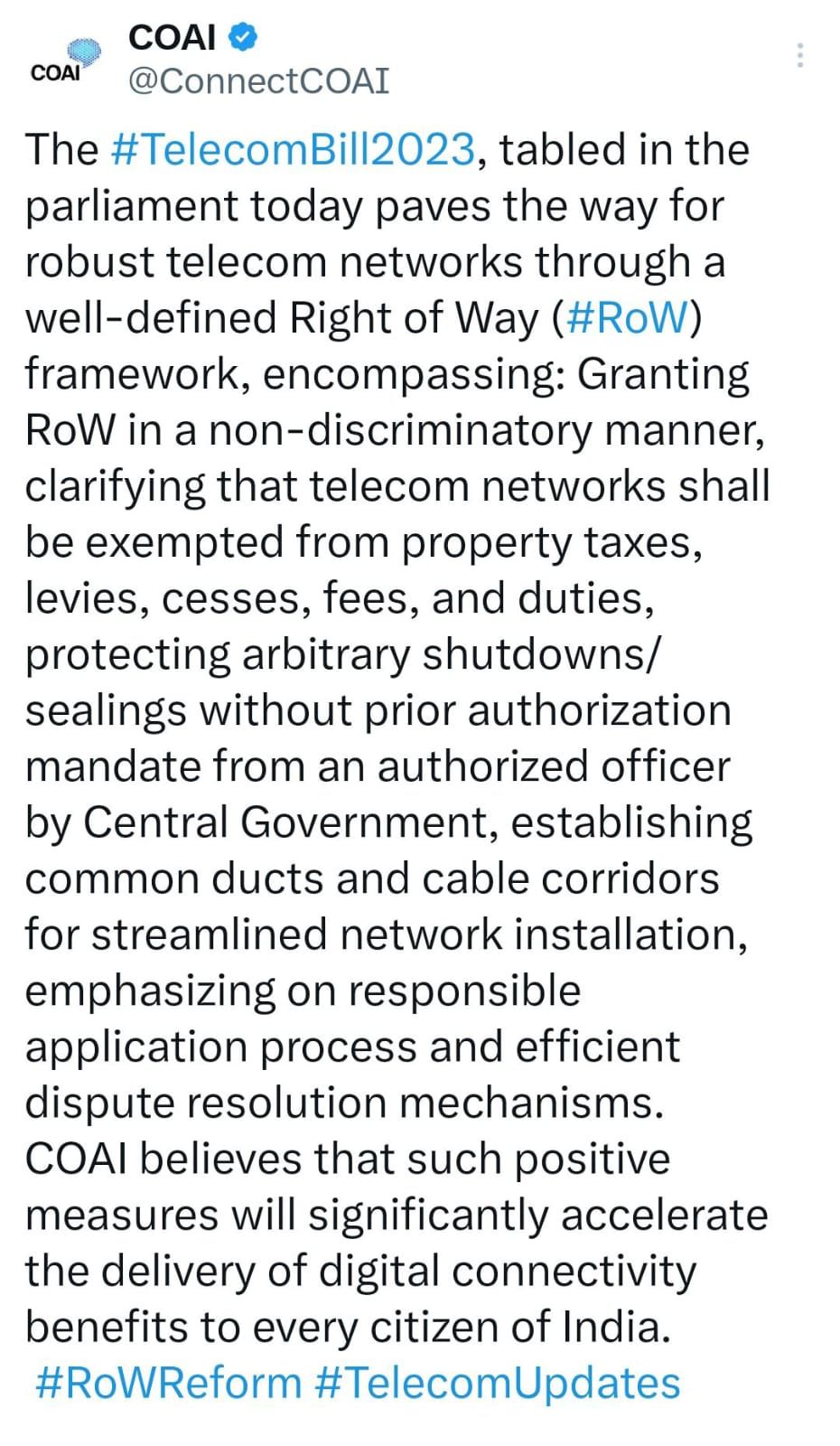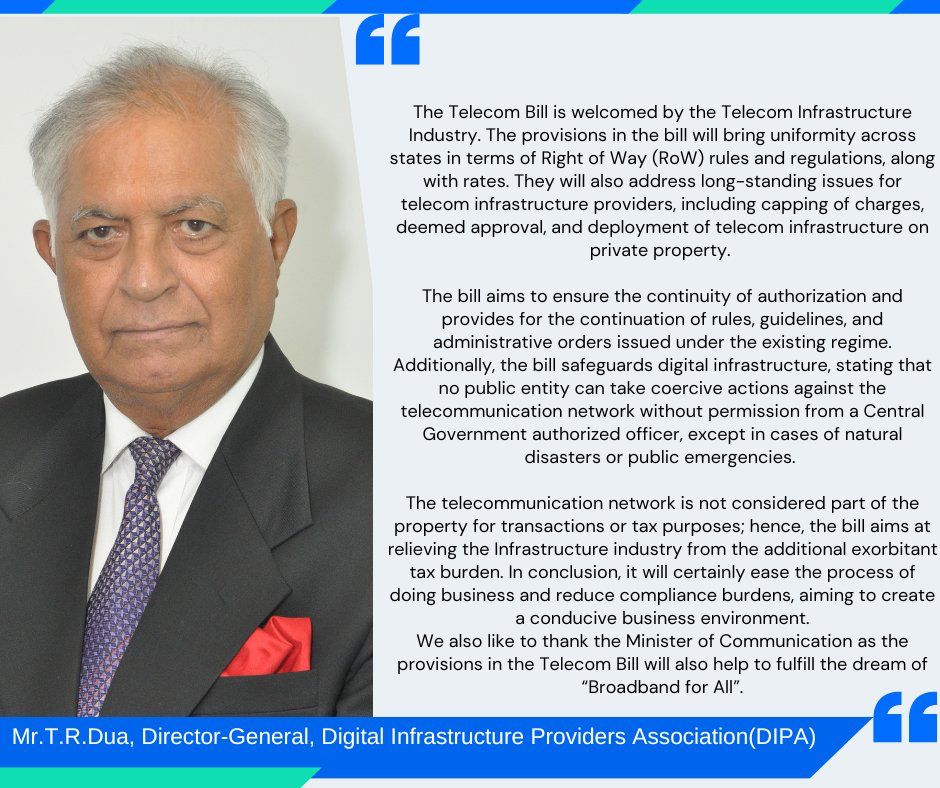NEW DELHI: Upon the Telecommunications Bill being tabled in the Parliament on Monday, the Internet and Mobile Association of India (IAMAI) hailed the move as “progressive”, hoping for it to get passed in both Houses.
The representative body of about 600 internet firms and start-ups, highlighted that through the Bill there would be distinction between spectrum and non-spectrum broadcast. Thus, it has been ascertained that through the Bill, non-spectrum broadcast has been exempted.
“The Bill introduced in the Lok Sabha now excludes email, internet-based communication services, broadcasting services, machine to machine communication services and over-the-top (OTT) communication services, as suggested by IAMAI,” the organisation highlighted.
However, the group had also suggested that devices that use Global Mobile Personal
Communication by Satellites (GMPCS) may be placed under the ambit of the Bill through administrative process. This aspect of their suggestion has also been included.
More significantly, the body had suggested the exemption of all broadcasting services, since it did not fall under the ambit of telecommunications. The IAMAI stated that it had “recommended that ‘broadcasting services’ should be explicitly exempted from the purview of the Draft Bill and from the definition of ‘telecommunication services’, particularly in respect of content.”
The Cellular Operators Association of India also highlighted how the Bill formulates a well-defined and robust Right of Way. Taking to microblogging site, X, it stated, “COAI believes that such positive measures will significantly accelerate the delivery of benefits of digital connectivity to every citizen of India.”
TR Dua, the Director General of the Digital Infrastructure Providers Association, hailed the move for safeguarding civilians from public entities taking control of their means of communication. “The bill safeguards digital infrastructure, stating that no public entity can take coercive actions against the telecommunication network without permission from a Central Government authorised officer, except in cases of natural disasters or public emergencies,” he said.
He further added that the Bill would make for a more “conducive” business environment. “It will certainly ease the process of doing business and reduce compliance burdens, aiming to create a conducive business environment,” Dua highlighted.
The Telecom Bill is slated to empower the government to suspend or prohibit use of telecom equipment from countries or a person as may be notified in case of national security. Telecom equipment needs to be procured from trusted sources only.












